Grab a needle and thread, raid your fabric stash (or even just rip up an old, unloved blouse or shirt) and you have everything you need to create a piece of art. Sounds so simple! And once you get going, there’s nothing quite like working with your hands and making something from nothing.
So why does establishing, building and maintaining a regular and playful stitch practice present such challenges?
Maybe you’re buzzing with ideas but struggling to express yourself with stitch? Or perhaps you tend to fall back on the same old techniques just because you know how?
Sticking with what you’ve always done (and producing pieces that look a bit like everything else you’ve ever made) feels less risky than venturing outside your comfort zone, but can very easily lead to a practice that feels a bit stale.
Or maybe nourishing your creative self never feels like a priority and so you struggle to make time to actually get started?
You’re not alone. Despite varying levels of skill and experience, TextileArtist.org Stitch Club members Sharron, Rachael, Jane and Janet encountered similar frustrations when it came to making textile art.
By sharing their work and seeking advice and support from other stitchers and shifting their focus to process rather than product they are now enjoying a more playful, experimental and joyful practice. We talk to them about how they did it.
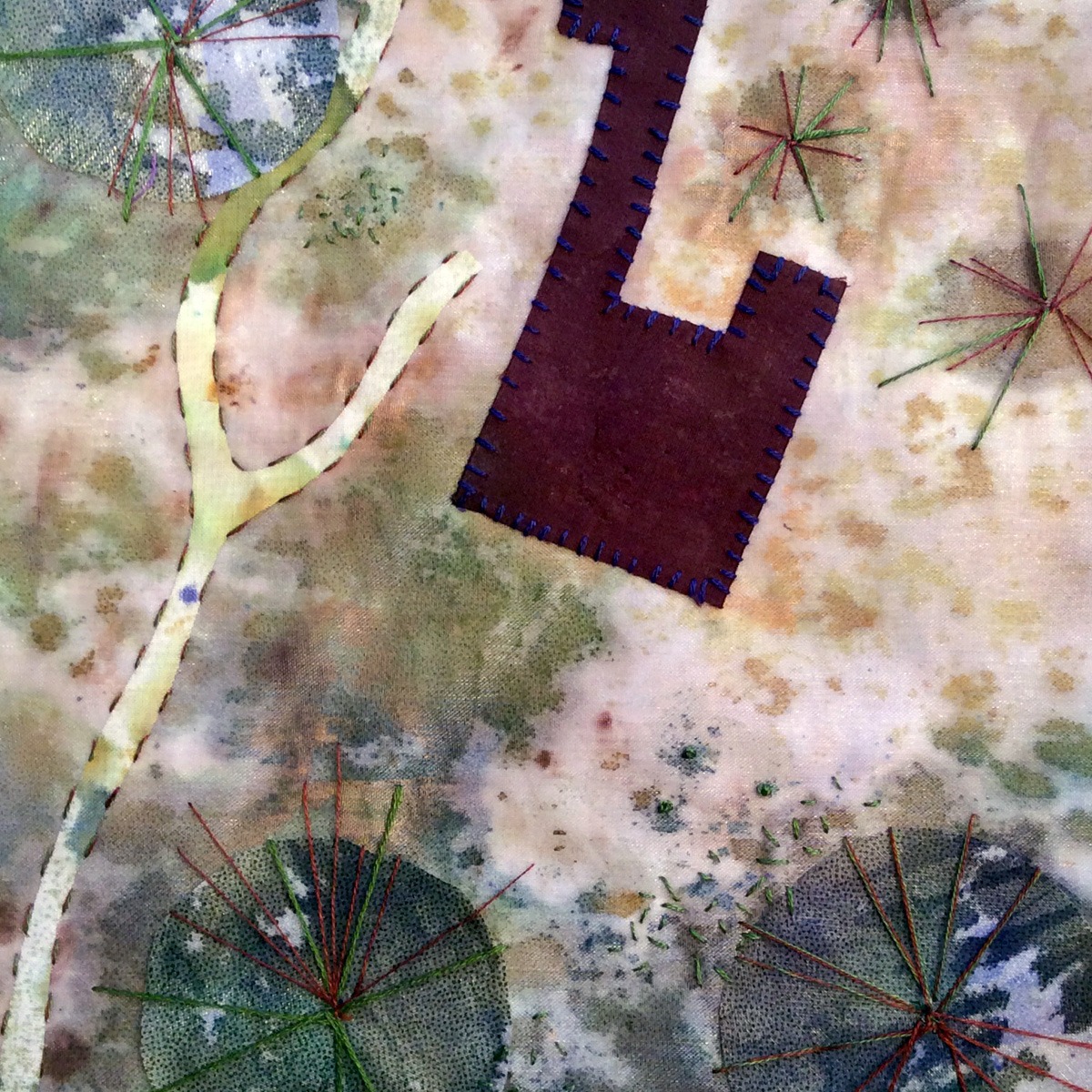
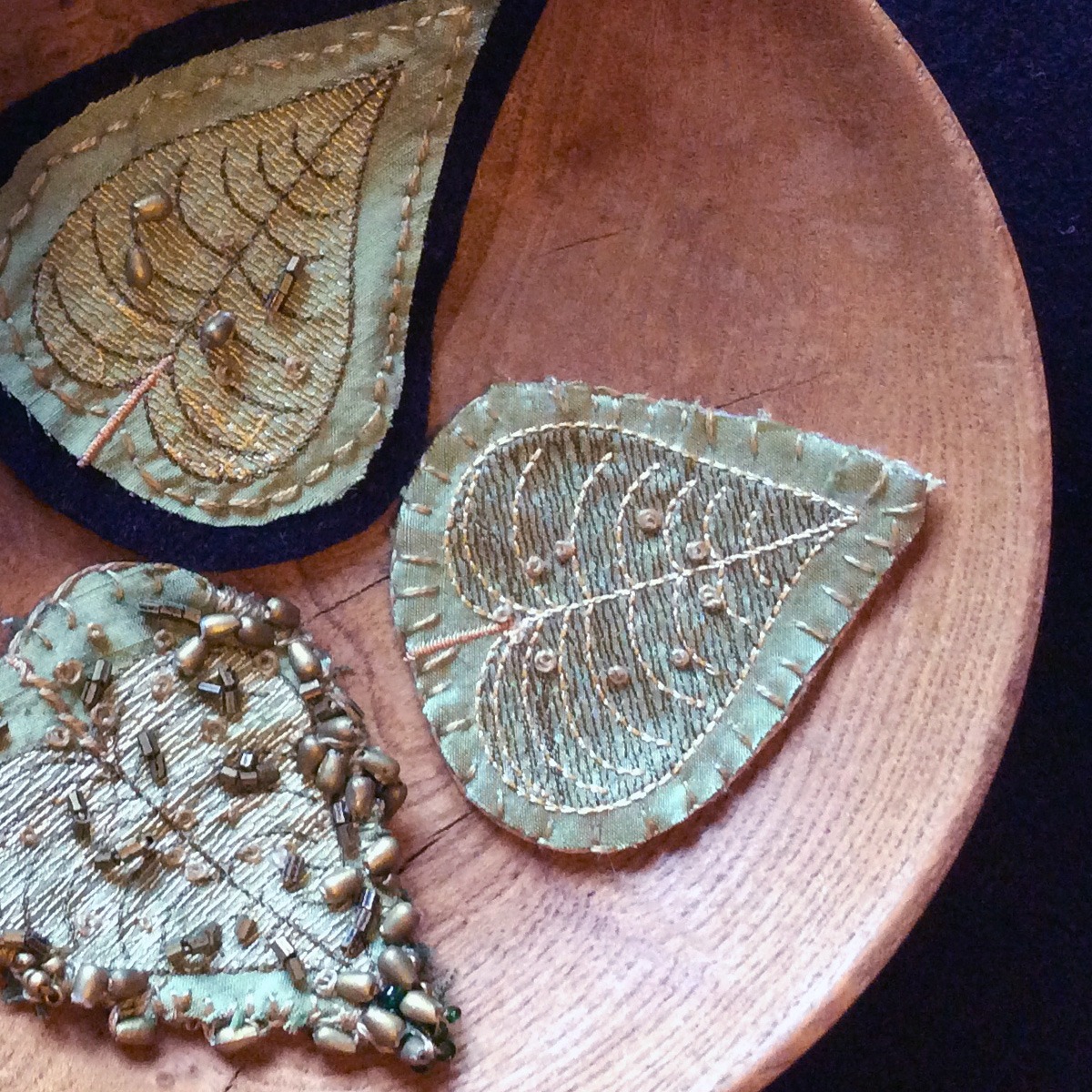
Stop looking, start stitching
Hands up if you are guilty of buying textile book after textile book, waiting until you have mastered ‘enough’ before you start expressing yourself? You can learn a lot from a book but at some point you have to stop reading and start stitching – as recently retired visual artist Sharron Lea shared with us.
“I’ve returned to what I loved as an art student in the 1970s: then I was passionate about stitching and how it might be applied to art,” she says, “but at that time the potential for earning a living from textile arts was limited so I set it aside and focused on graphic design instead.”
Although retirement gave Sharron the freedom to pursue her love of embroidery and textile art, she didn’t have a strong visual vocabulary and struggled to express herself freely and clearly through stitch. Sharron was self-taught but as she told us “there’s only so much you can learn from a book”.
Feeling stuck in a creative rut, Sharron put aside her books for a while and got involved with the free TextileArtist.org Community Stitch Challenge, which started back in March 2020.
After watching the first challenge video from textile artist and former Chair of the 62 group Sue Stone, Sharron wasn’t convinced. “I remember looking at the running stitch exercise and being sceptical,” Sharron said.
But she picked up her needle and thread and was surprised to discover that, with the right guidance, she was able to find endless creative ways to express herself using the simplest of stitches. “Who would have guessed where those first running stitches would lead me! Without them I never would have gained the confidence that I have now.”
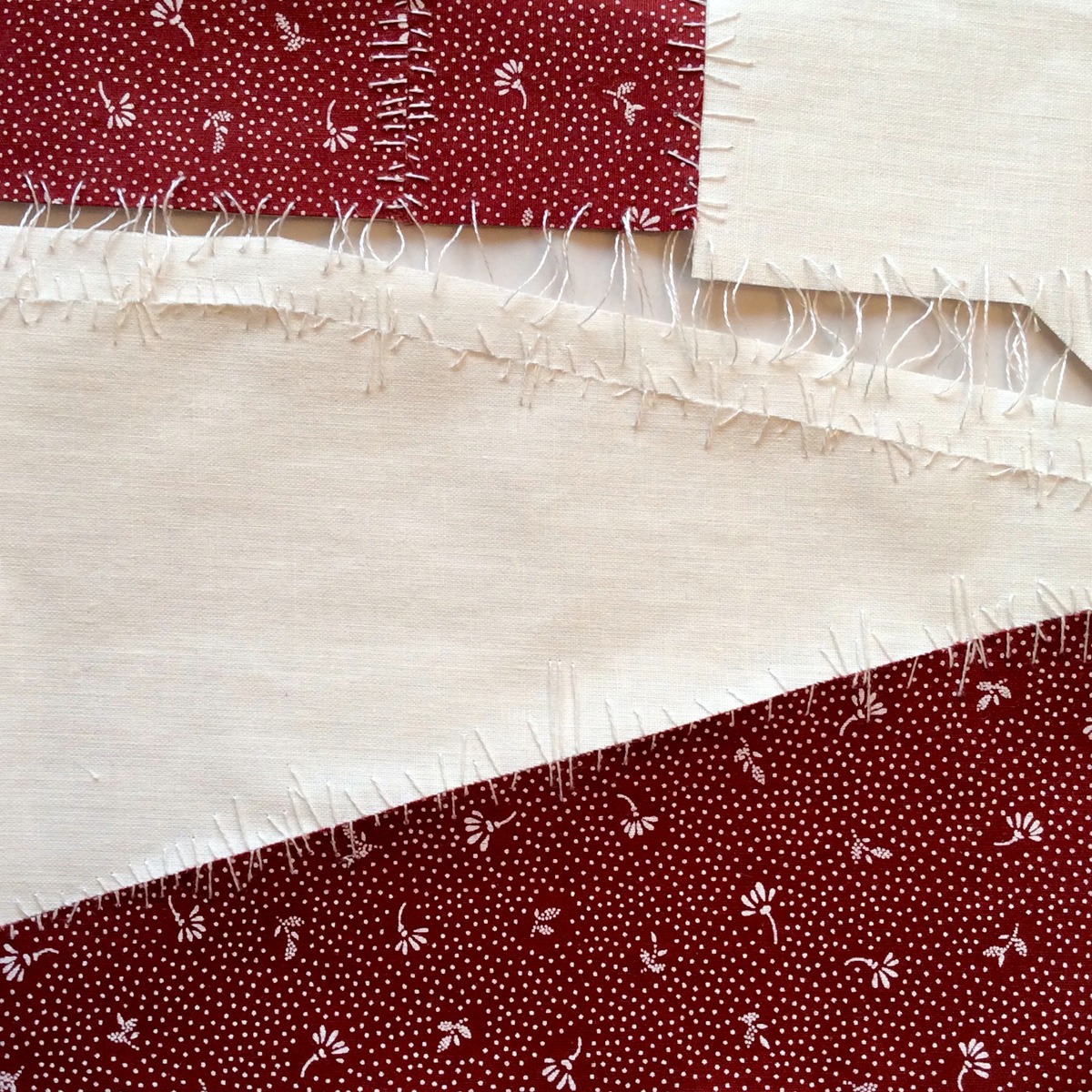
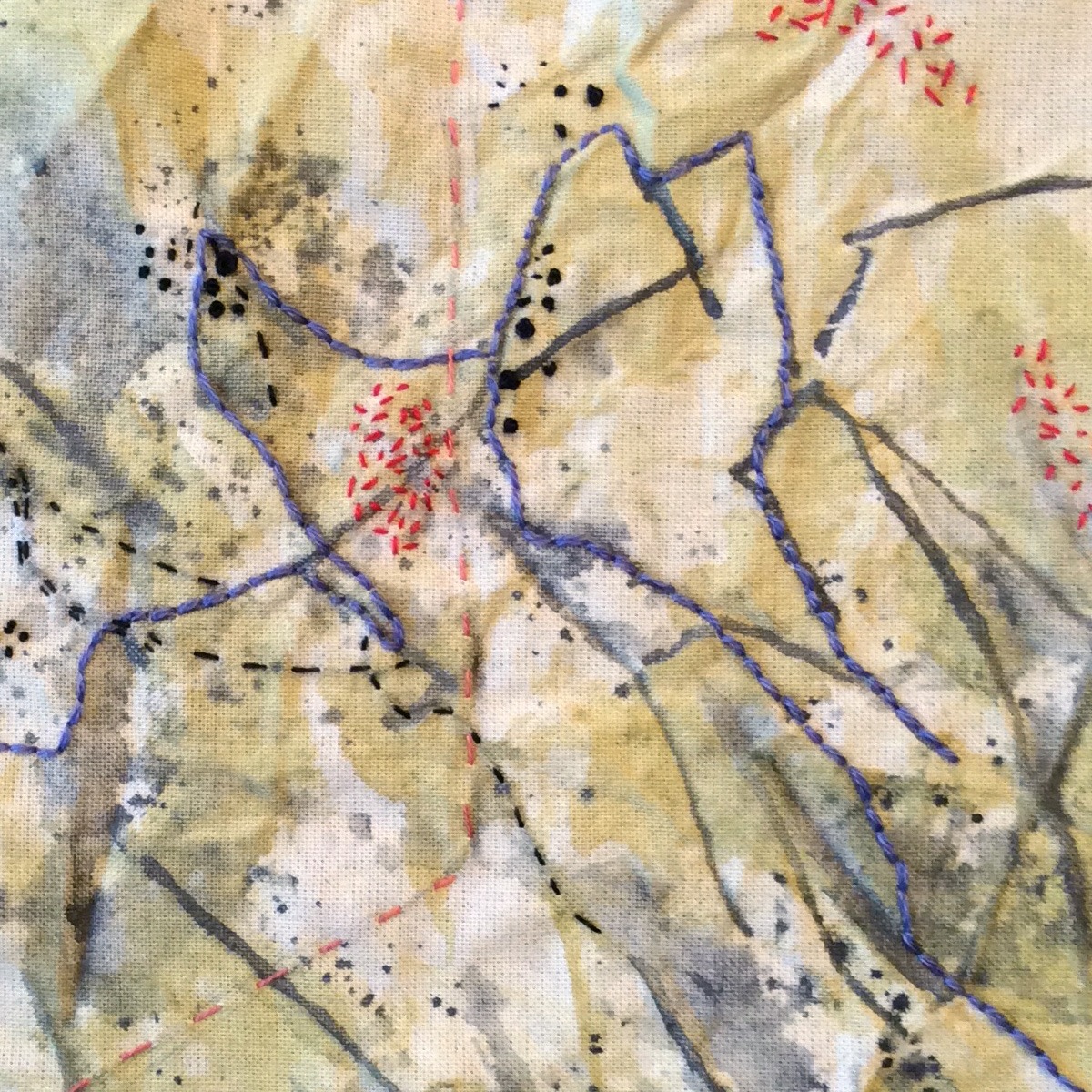
Embracing experimentation
Sharron’s experience with the Community Stitch Challenge encouraged her to keep on stitching and experimenting.
Being exposed to different styles and stitches has been fantastic for Sharron, but the key has been actually applying them to her work in an interactive environment. She is learning to transfer her fine art skills to fabric and thread through experimentation, a leap didn’t feel able to make with books alone.
“I’m used to mixing colours in paint and now I can mix fabrics with colours and textures…Learning online has taught me things that I didn’t know that I didn’t know. I’ve discovered the visual and creative potential of simple stitches like blanket stitch and running stitch. I’m doing things that I never would have done in the past because I wouldn’t have thought of it.”
Inspired by a Stitch Club workshop from artist Sabine Kaner, Sharron created an imaginary map by combining watercolour and embroidery on fabric. Now she is taking that a step further: “I’m doing a whole series of these imaginary maps,” she told us, “and I’m presenting them together in a small book that I’ve created using my newly learned textile bookbinding skills.”
“Stitching regularly, as well as being inspired by textile artists and my fellow Stitch Club members has really helped me see embroidery as a valued and worthwhile practice. There is a camaraderie that is both exciting and refreshing. My stitching gives me so much joy.”
As Sharron discovered, expressing yourself creatively comes from regular practical experimentation.
By the way, we made a free PDF to go along with this article; in it you’ll discover six tips for getting started with stitch. Download the freebie by clicking on the big yellow banner below.
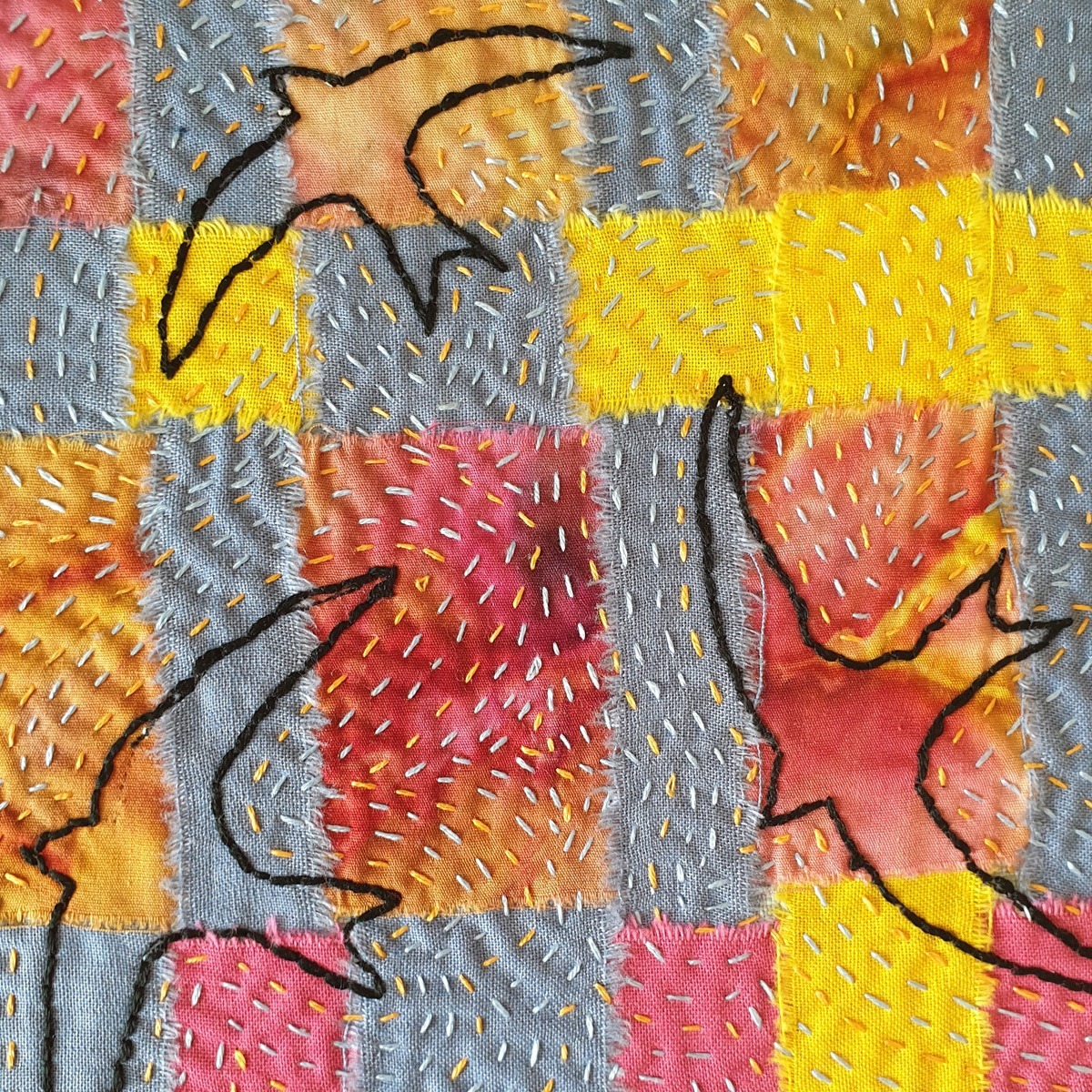
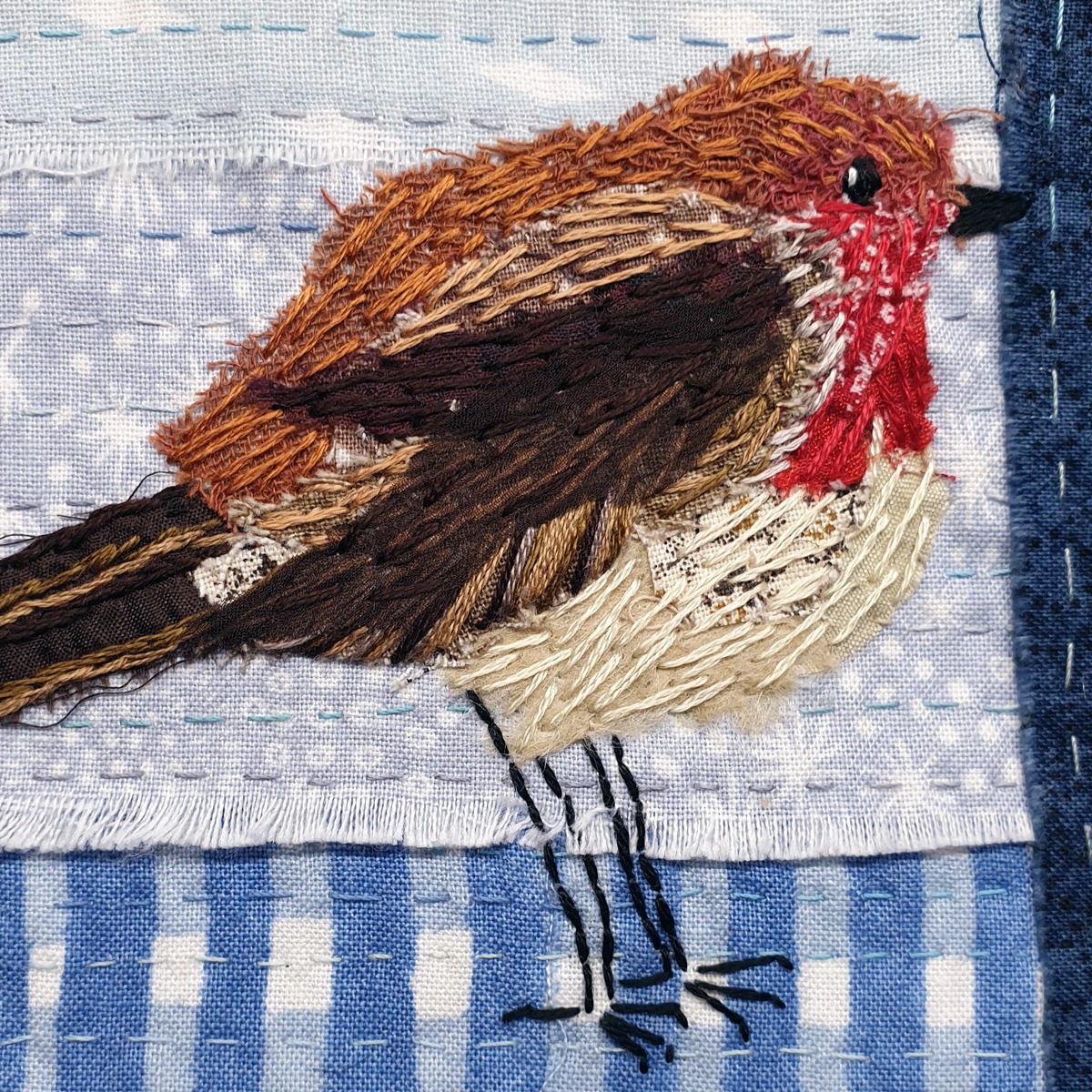
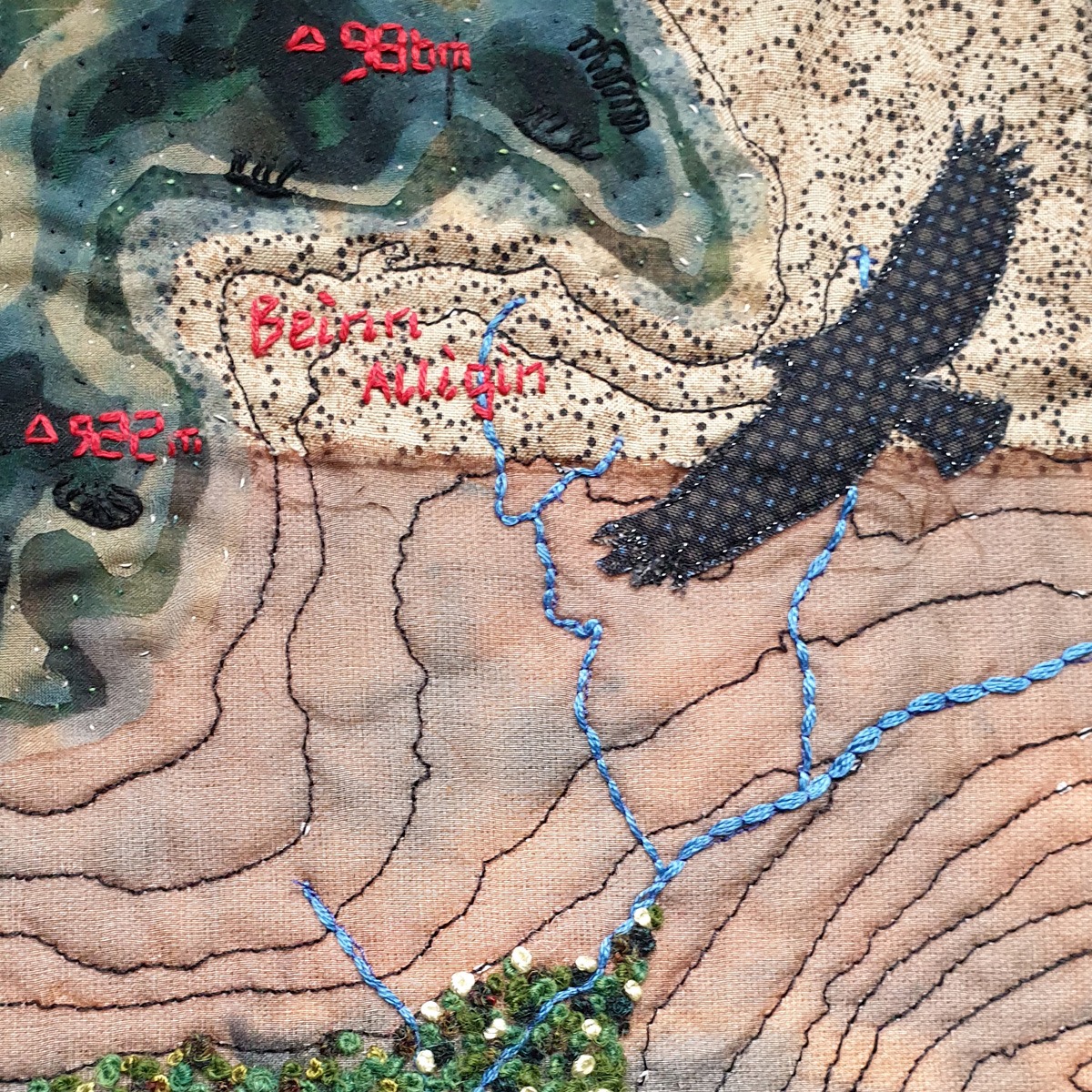
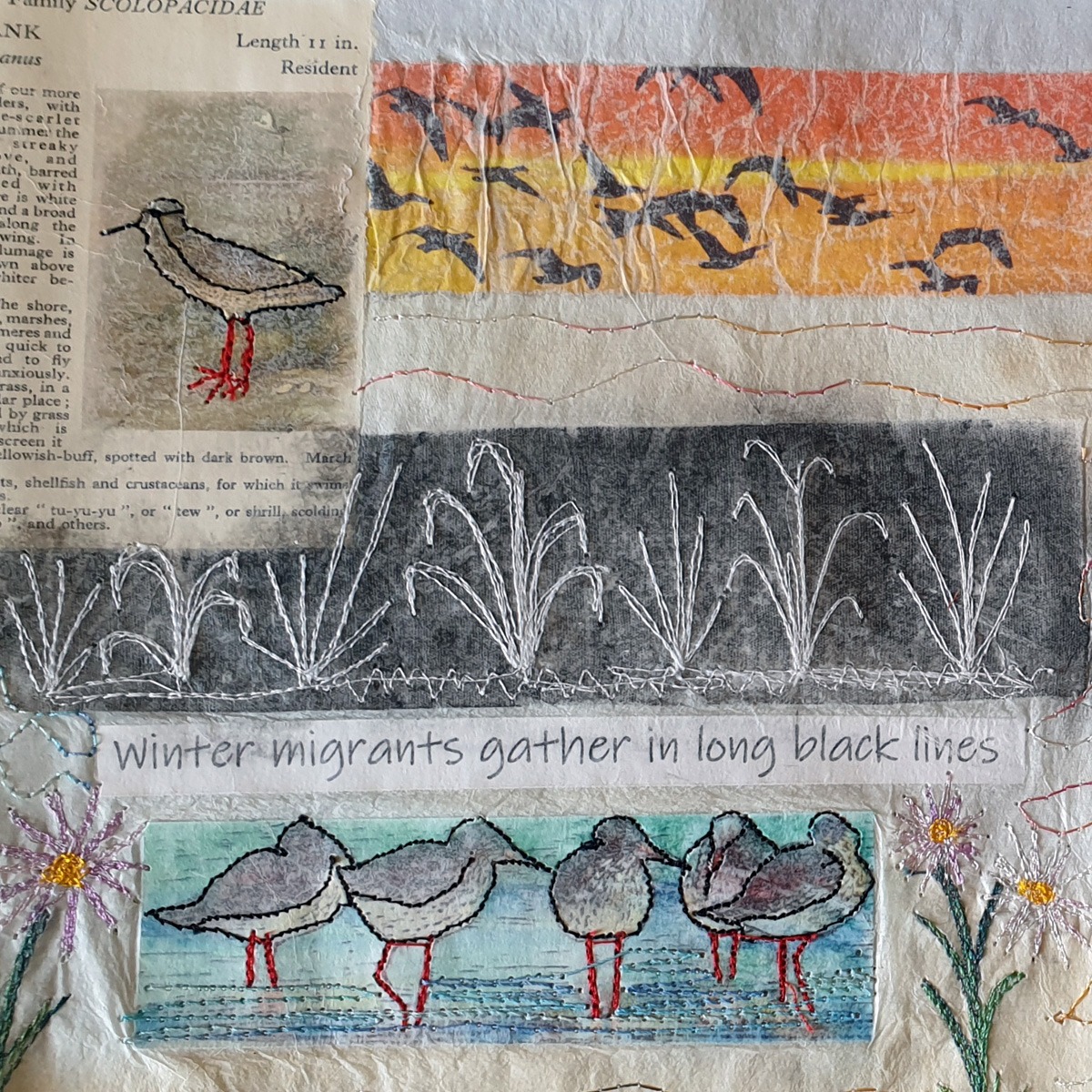
Stitching at home, but not alone!
When the pandemic hit in 2020, in-person workshops were cancelled and embroidery groups put on hold. But out of enforced isolation came opportunities to connect with inspirational teachers and fellow stitchers in new, exciting ways, as stitchers like Rachael Margeson discovered.
Exposure to fresh influences and inspiration is essential ‘fertiliser’ for creativity. Although Rachael had completed Part 1 City and Guilds, perhaps the most recognised qualification for textile design in the UK, and was well on her way to finishing Part 2, she was struggling to develop a confident ‘stitching voice’.
Living in South Cumbria, a beautiful rural area of the UK, local workshops were too basic for Rachael and the cost of attending courses further afield was prohibitive. Rachael caught wind of the online Community Stitch Challenge from social media and discovered she could connect with others without leaving home.
“I loved the Community Stitch Challenge workshops. I was completely blown away by the pieces I managed to produce (without a huge amount of angst) and was so supported and encouraged by the online community. Learning online is exposing me to teaching, inspiration and support that I could never access otherwise.”
Learning online has been the catalyst for Rachael to discover her own voice and distinctive stitch footprint. “It’s making it possible for me to spend more time learning, developing my style and hopefully developing as an artist in my own right.”
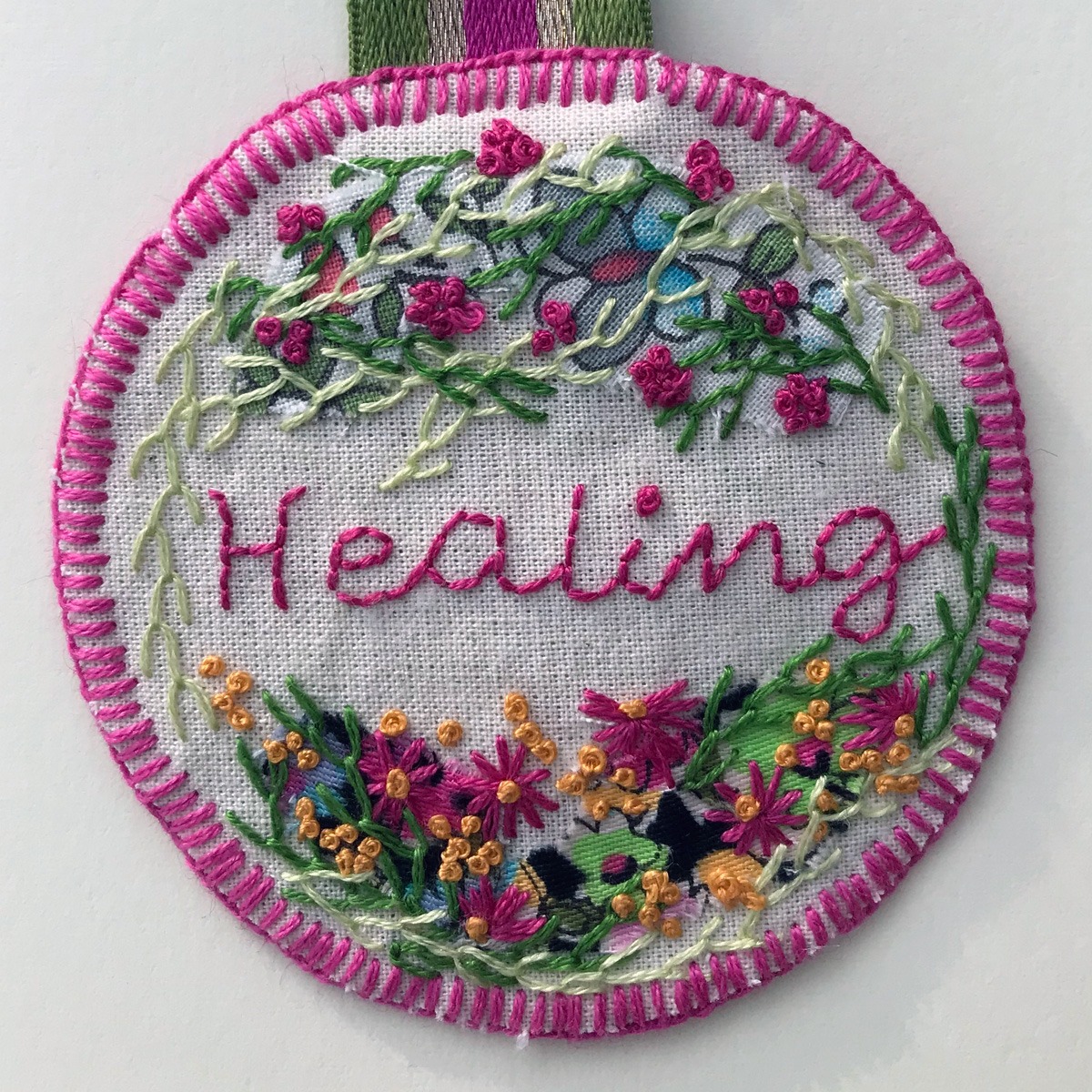
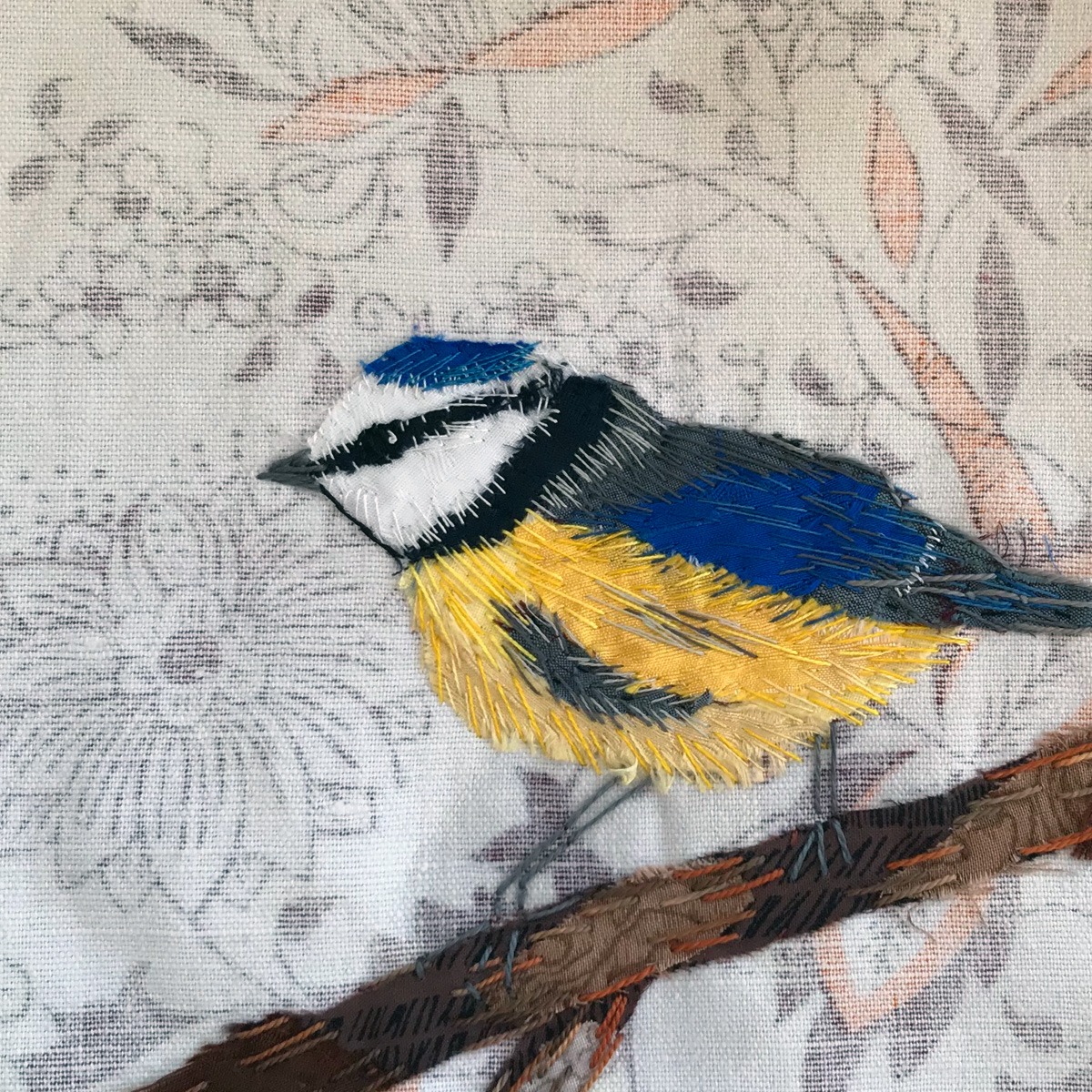
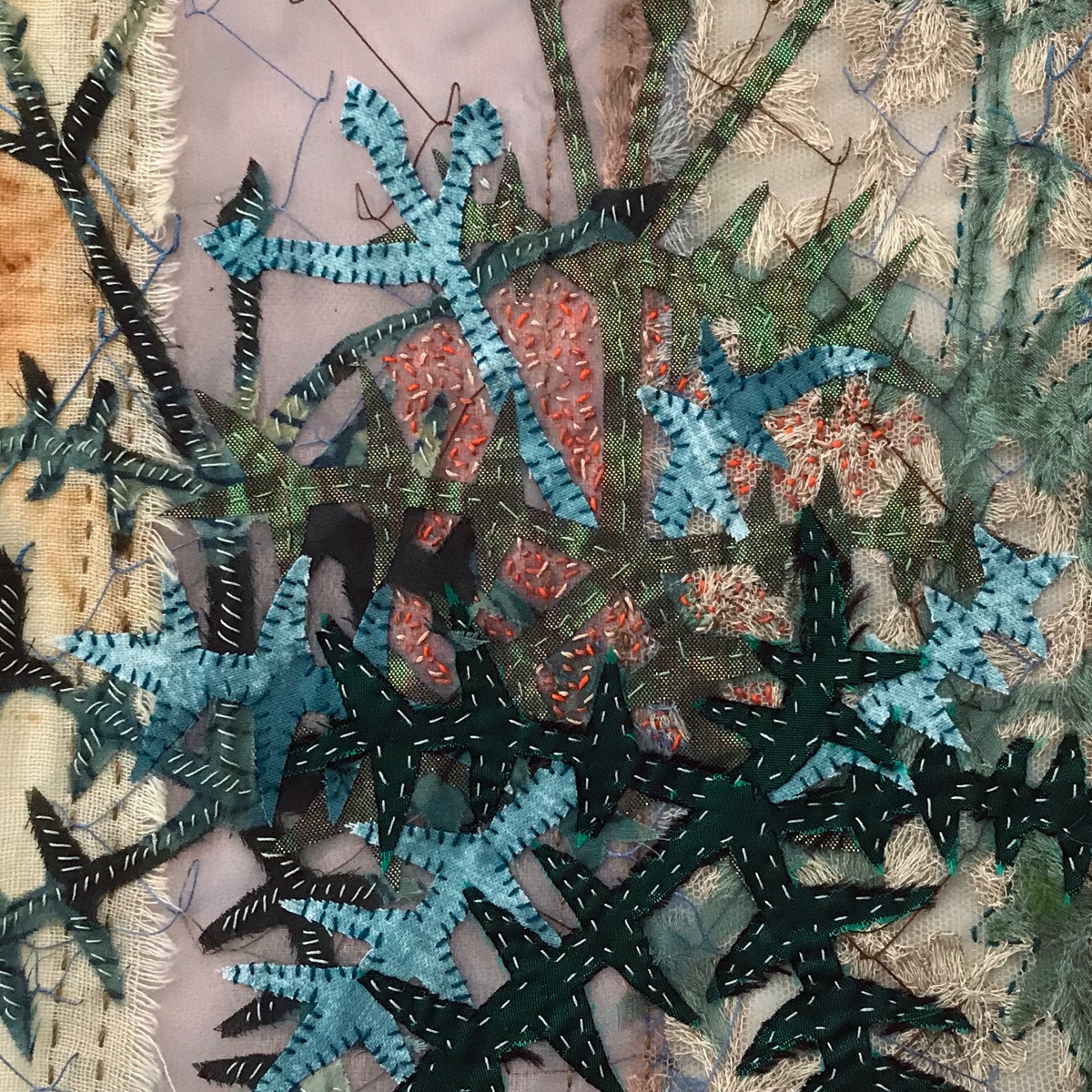
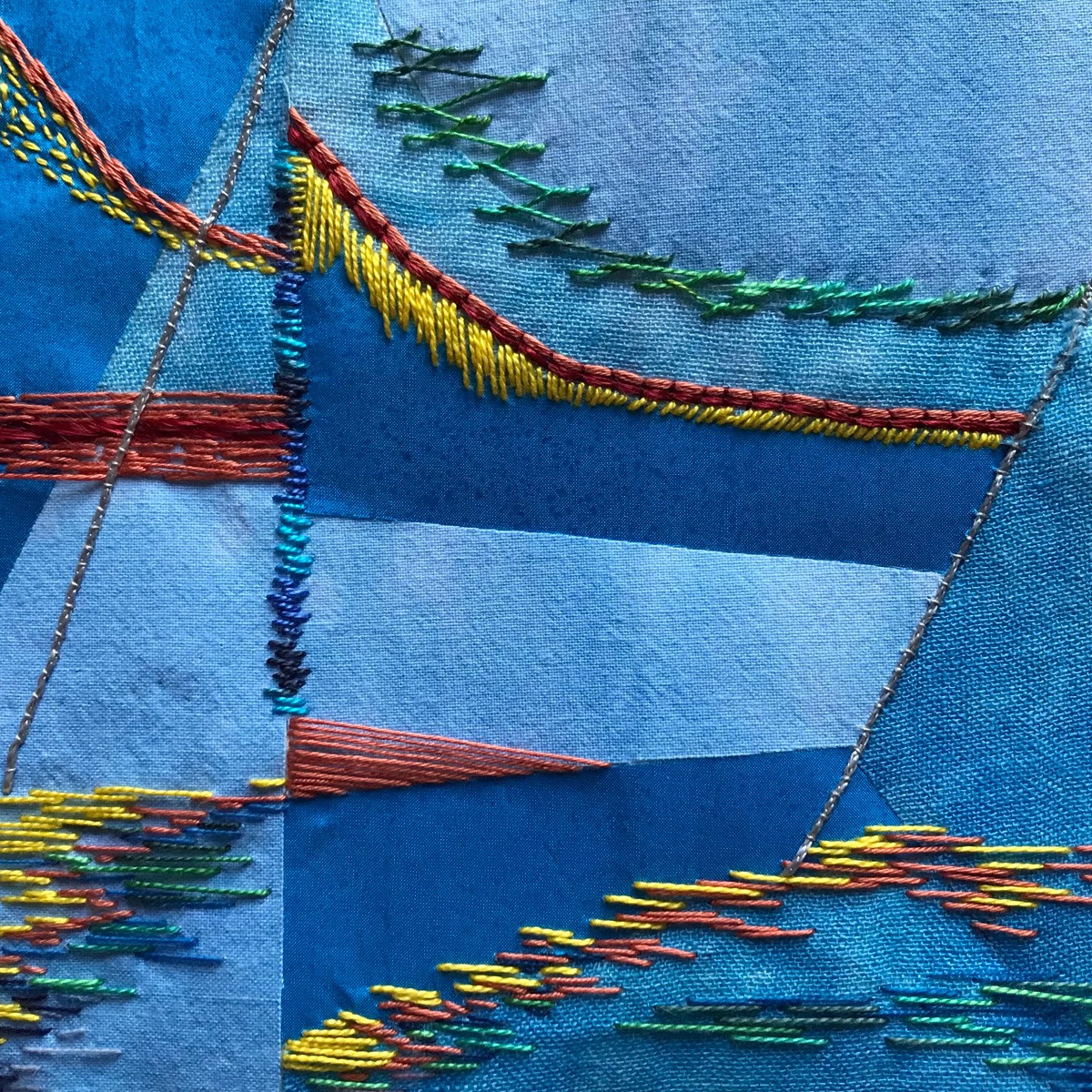
Widening your sphere of influence
Engaging with others and sharing tips and ideas is a great way to learn. Seeing someone else’s interpretation of a brief or hearing their perception of your work can create remarkable shifts in perspective.
Jane Cook had been stitching for sixty years and had been an embroidery teacher in her time too, but she always felt something was missing. Although technically proficient she struggled to initiate her own ideas. “I was taught that personal expression would just arise, but I was at a loss as to how to make that happen. As a teacher I felt I’d be judged so my creative expression stagnated although my technical skills continued to develop.”
Feeling frustrated it was only when Jane took Sue Stone’s Exploring Texture & Pattern course that she discovered online learning; this was followed by what Jane described as “seven weeks of sheer joy with the Community Stitch Challenge”.
The rewards of sharing within a community gave Jane confidence: spurring her forward and transforming how she feels about her stitching.
“I am encouraged so much by the support of the community whose comments have enabled me to see my work differently and this then influences my own perspective of it – for the better! My stitch practice is now vibrant and purposeful. As I’m experimenting, I’m also reflecting on what I’m discovering. When I share that learning with others online that then prompts ideas in return. These engaging conversations are so enriching – I wouldn’t get that from a YouTube video!”
Just a reminder about the free gift that accompanies this article. You can download it by clicking on that big yellow button below.
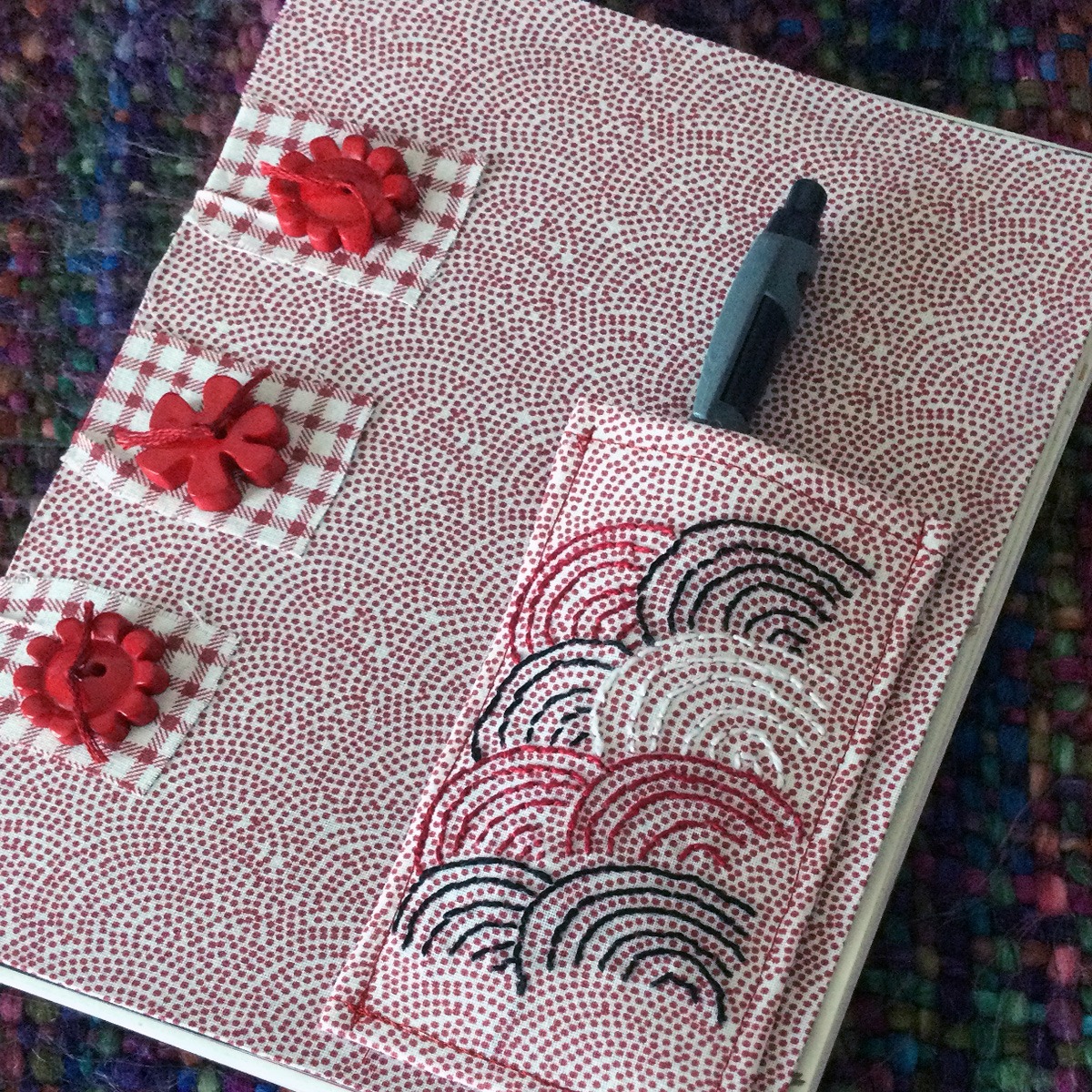
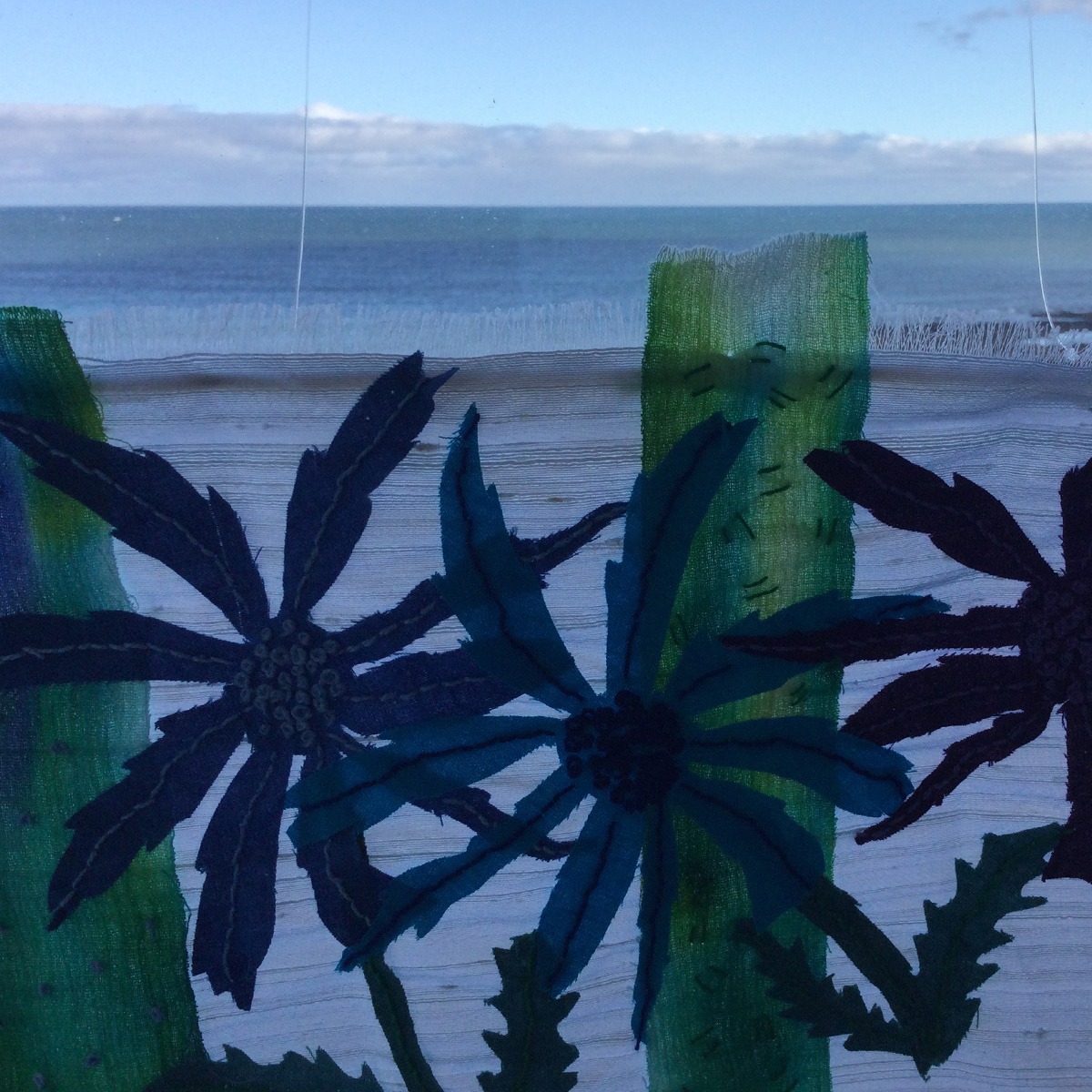
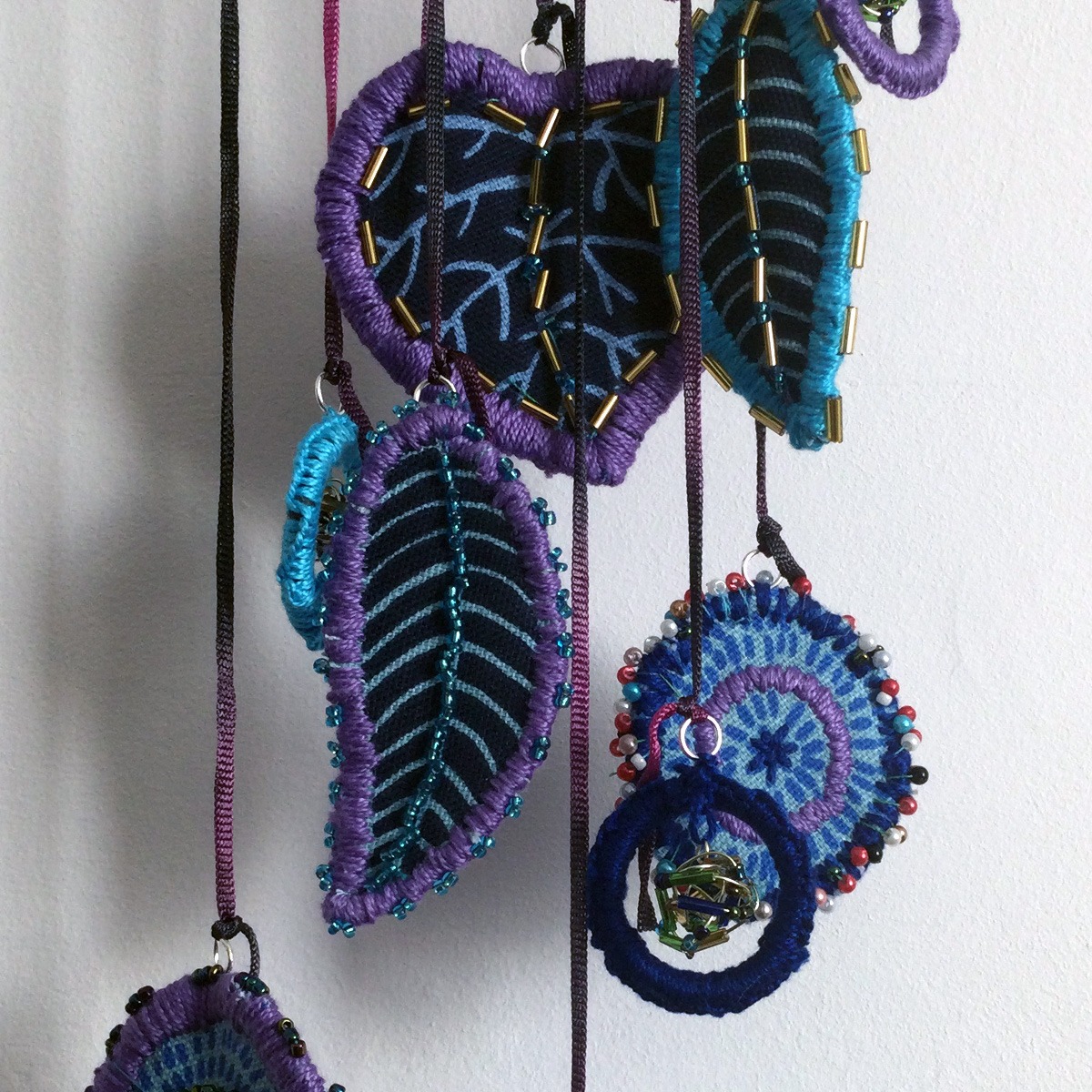
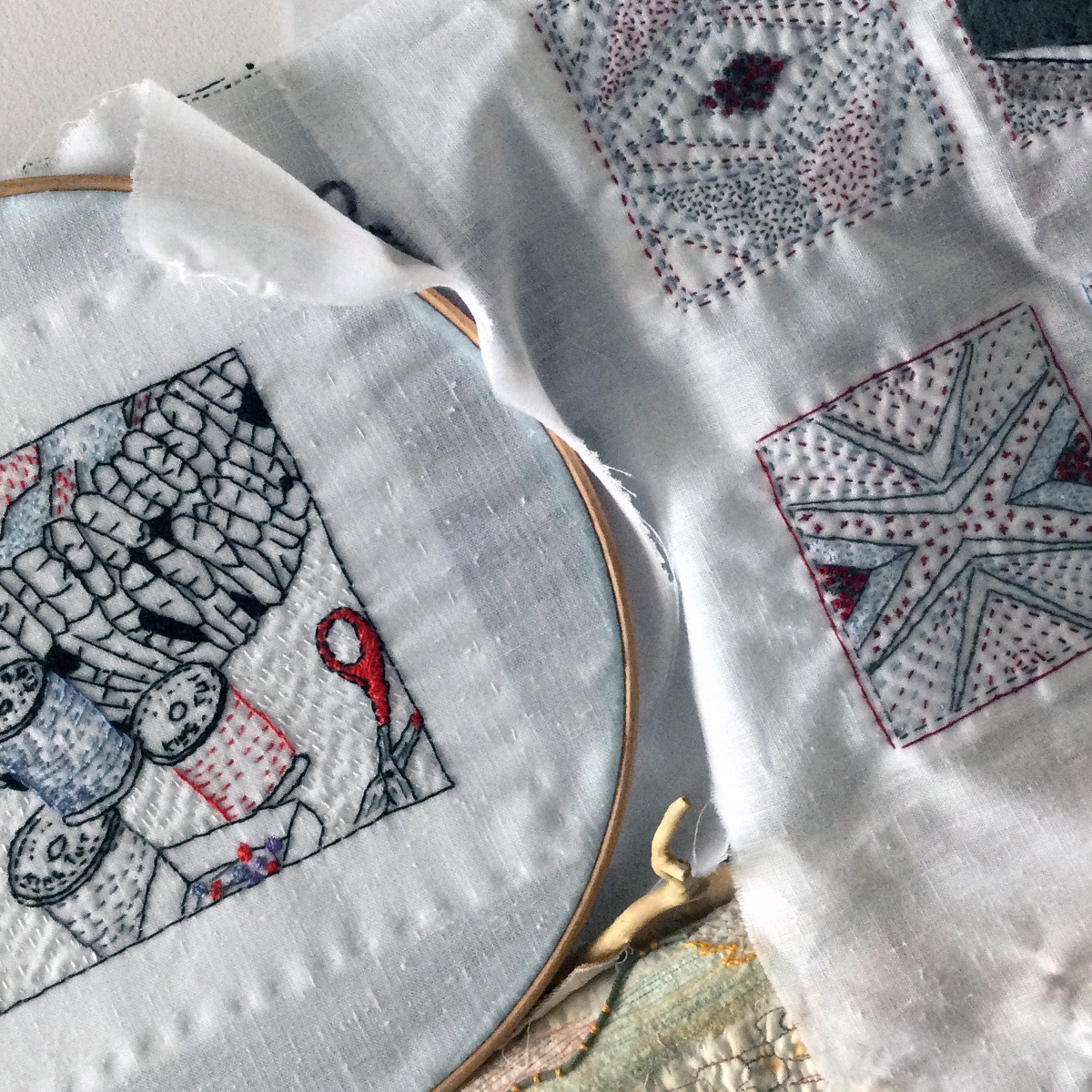
Structure, consistency and play
“Almost all creativity involves purposeful play” said psychologist Abraham Maslow. Focusing on process rather than outcome takes the pressure off – after all if you are just playing you can’t get it wrong. The more you relax the more likely the creative juices will flow as Janet Patterson discovered.
Janet has loved stitching since childhood but working and bringing up a family left her no time for building a consistent creative practice.
“Retirement gave me the opportunity to dip into different areas of textile work which reignited my passion for stitching,” Janet says, “I loved getting together with likeminded people and learning new skills. Lockdown restrictions could have left me feeling very isolated but luckily I found TextileArtist’s Community Stitch Challenge online.
Since then I haven’t looked back and my stitching has been a life saver: it’s given me a creative outlet and provided structure in an uncertain world. It has given me an excuse to take time out and play – exploring a variety of techniques and a diverse range of styles and approaches.”
You could sit around waiting for the muse to strike but as Picasso said, “inspiration exists, but it has to find you working.” The creative process is a call and response between one stitch and the next and how it interacts with the fabric. Janet can vouch for that. The more she stitches, the more ideas she has.
How can you make your practice more playful? What steps can you take to embrace a more experimental approach to making textile art? How can you stop worrying about the perfect end result and shift the focus to process instead? And how will all of this help you to establish a more regular and enjoyable stitch practice?
Why not share your thoughts in the comments below.
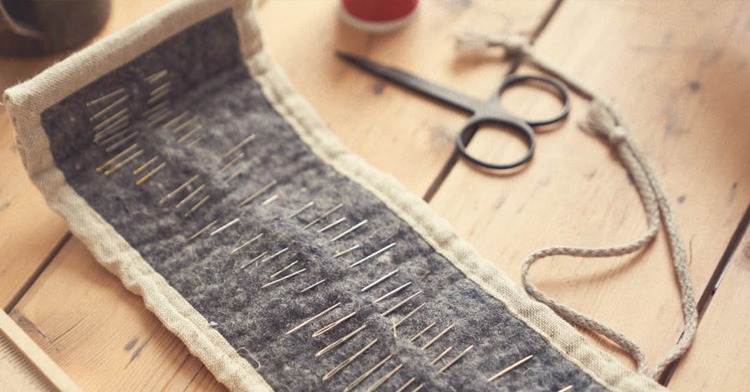
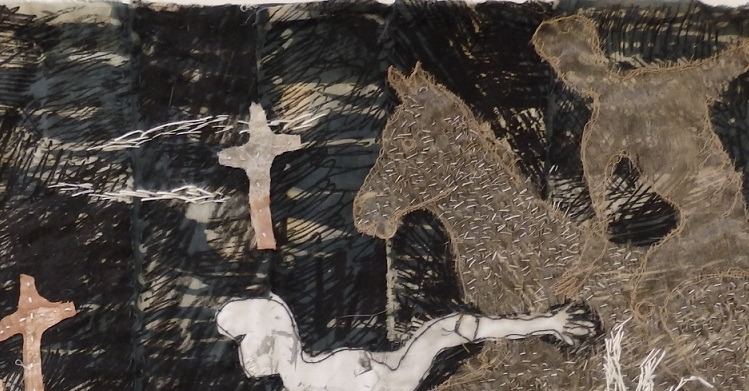
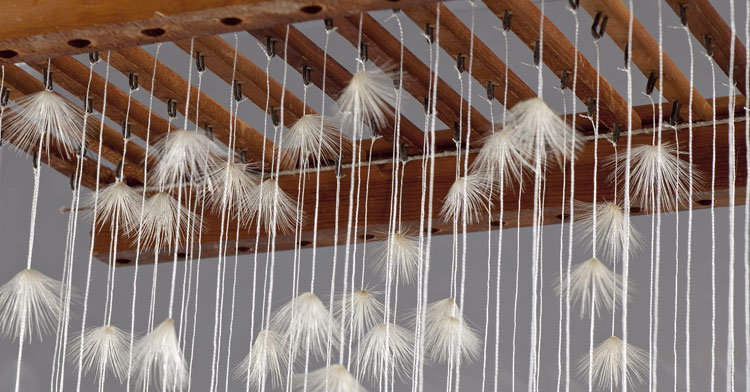
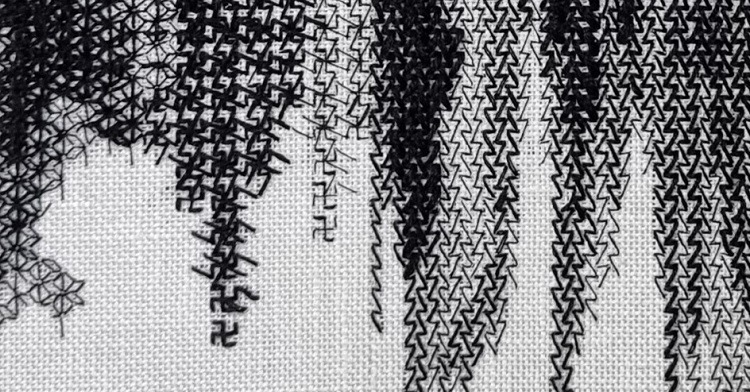
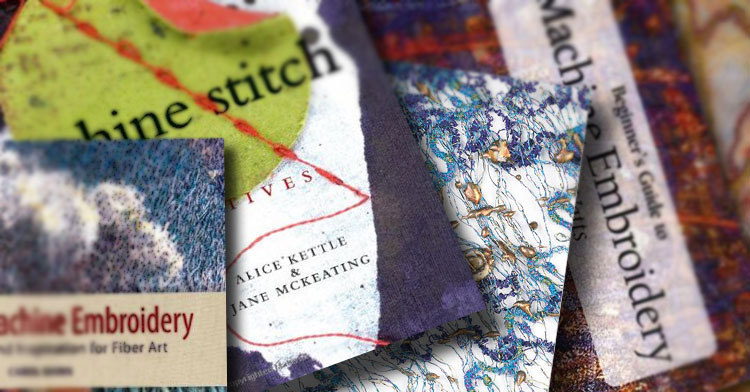
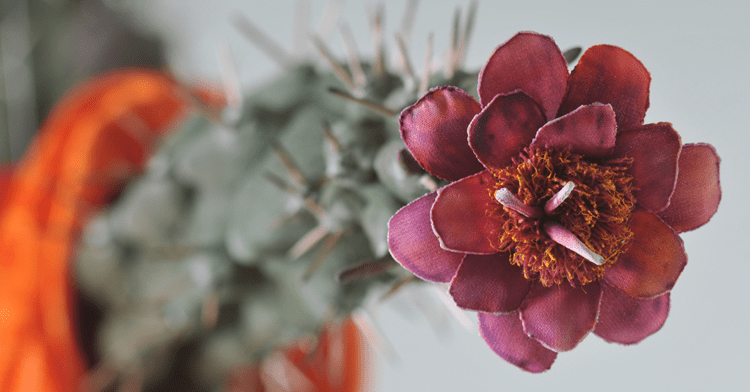
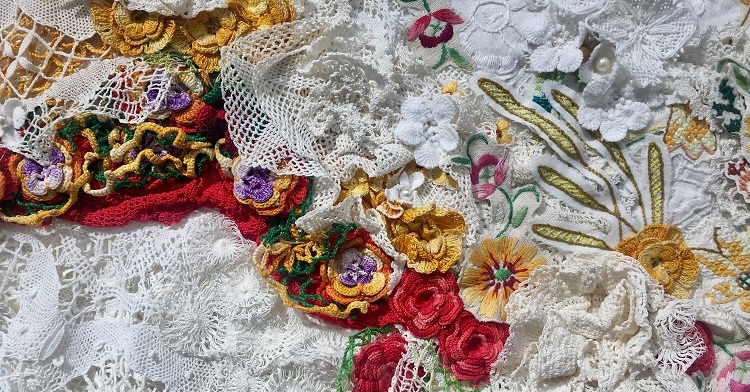
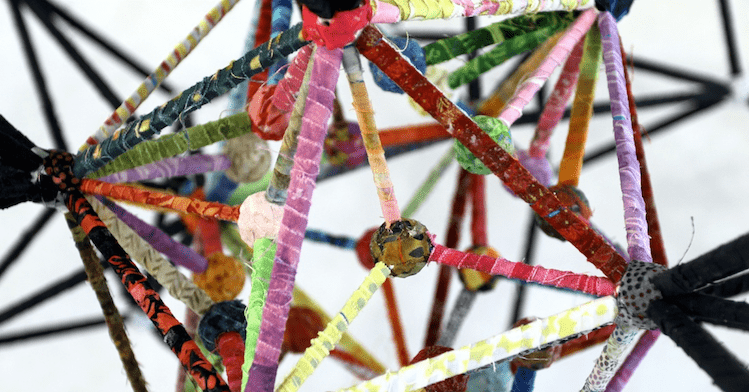
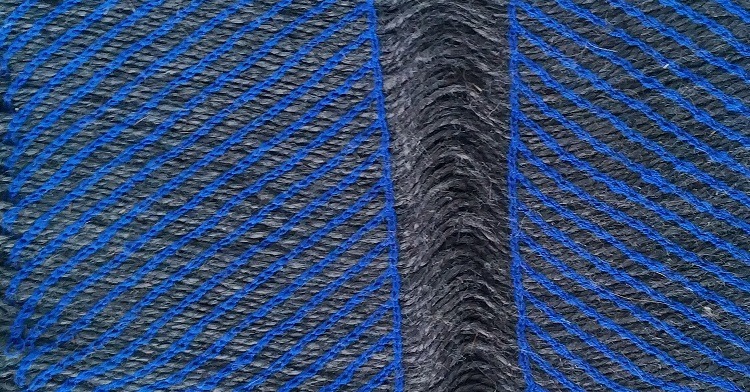
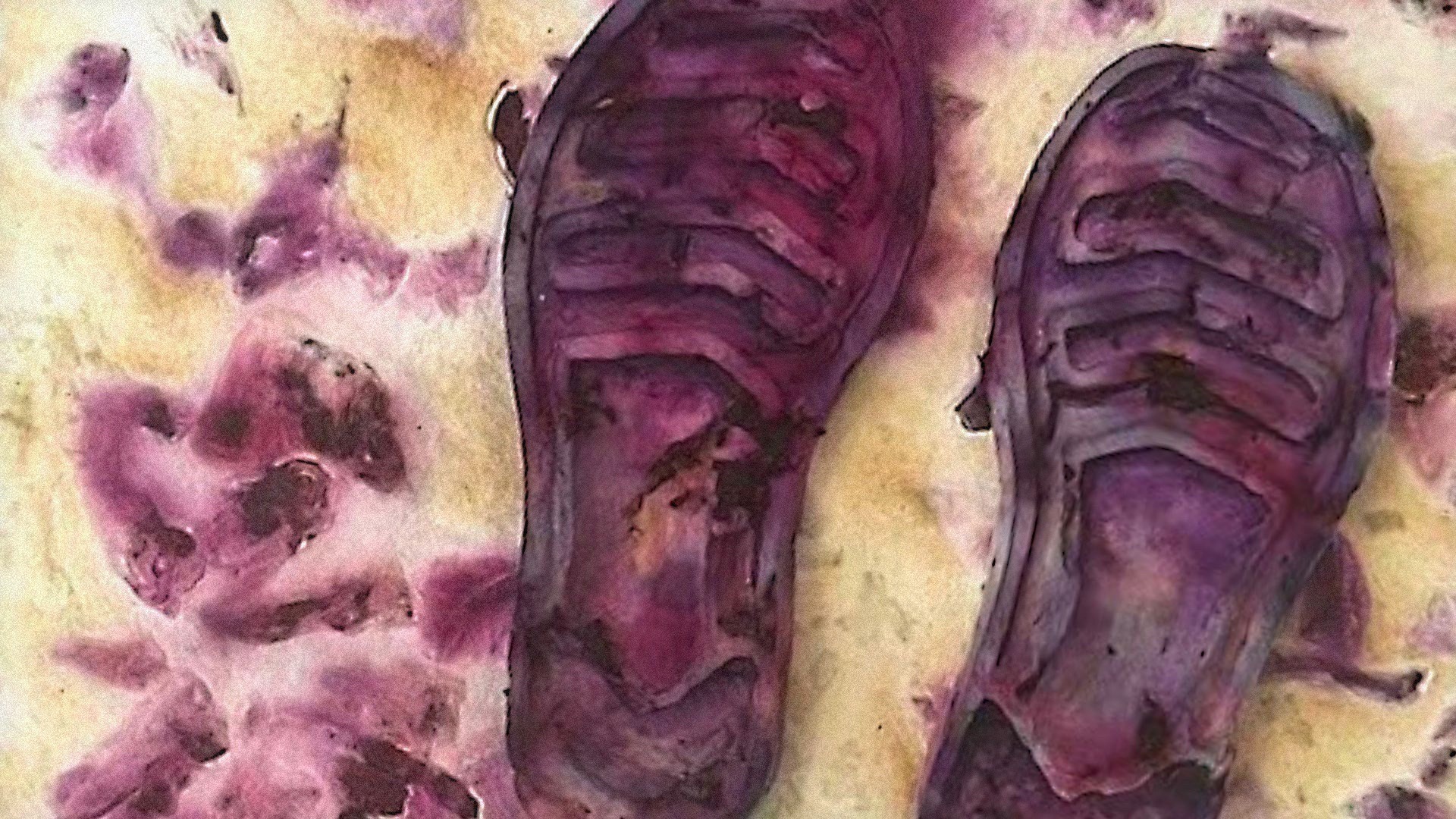
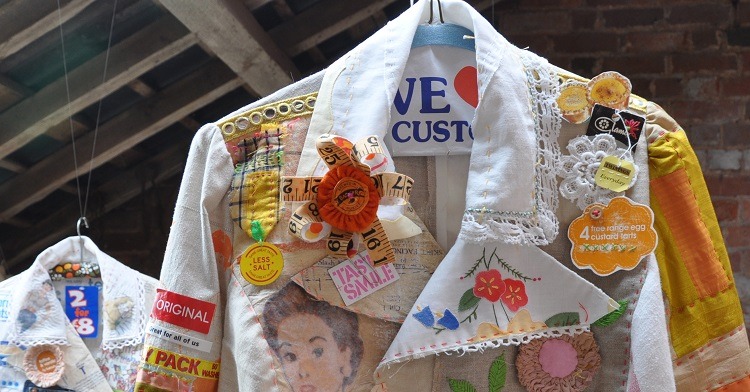
Comments